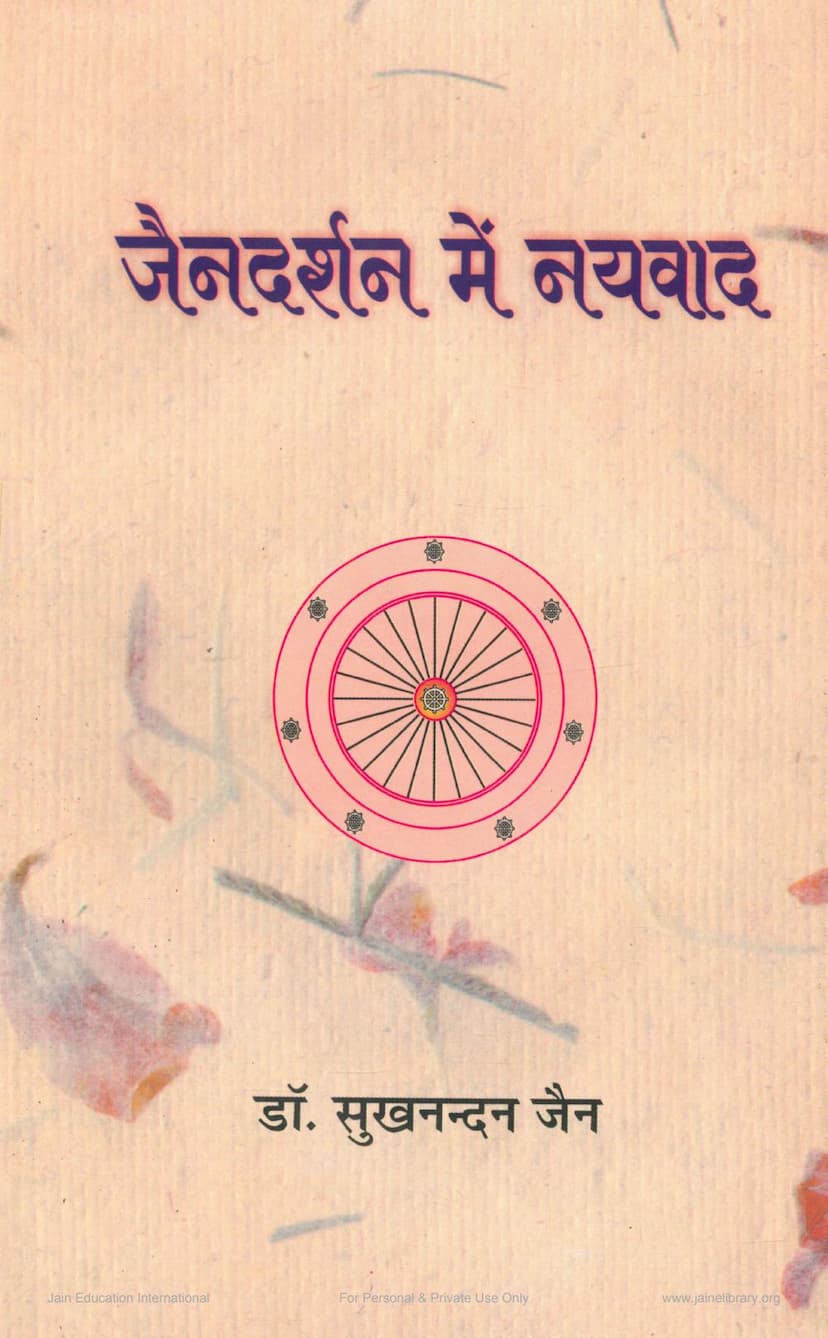Jain Darshan Me Nayvad
Added to library: September 1, 2025

Summary
Based on the provided text, here's a comprehensive summary in English of "Jain Darshan me Nayvad" by Sukhnandan Jain, published by Bharatiya Jnanpith:
Book Title: Jain Darshan me Nayvad (Jain Philosophy of Nayavada) Author: Dr. Sukhnandan Jain Publisher: Bharatiya Jnanpith
Core Concept:
The book "Jain Darshan me Nayvad" by Dr. Sukhnandan Jain, published by Bharatiya Jnanpith, is a critical study of "Nayavada" within Jain philosophy. Nayavada is presented as a unique and foundational contribution of Jain scholars to Indian philosophy. It is intrinsically linked with the principles of Anekantavada (non-absolutism) and Syadvada (conditional predication).
Central Argument and Significance:
The author argues that Nayavada is not just a theoretical concept but holds immense practical significance, especially in the modern era where conflicting ideas often clash. The fundamental aim of Nayavada, and by extension Syadvada, is to harmonize seemingly contradictory viewpoints, which is a crucial necessity for contemporary life. The book asserts that without understanding Nayavada, a complete exposition of Jain principles is impossible.
Key Contributions of the Book:
- Comprehensive Analysis: The book offers a thorough analysis of Nayavada in light of the entire Jain literary corpus, comparing it with other Indian philosophical systems.
- Clarification of 'Naya': It meticulously explains the nature of 'Naya' (perspective or standpoint) as a primary tool for understanding reality, distinguishing it from 'Pramana' (valid knowledge that grasps the totality of an object).
- Distinction between Pramana and Naya: The book elaborates on the difference between Pramana, which apprehends the complete nature of an object, and Naya, which grasps only a partial aspect of it.
- Harmonious Integration: It highlights the syncretic and spiritual dimensions of Nayas, demonstrating how they help in reconciling diverse philosophical viewpoints.
- Detailed Breakdown of Nayas: The book details the various classifications and sub-classifications of Nayas, including:
- Foundational Classification: Drabyarthika (focusing on the substance/unchanging aspect) and Paryayarthika (focusing on the mode/changing aspect).
- Other Classifications: It discusses Nayas like Naigama, Sangraha, Vyavahara, Rujusutra, Shabda, Samabhirudha, and Evam-bhuta, analyzing their scope, applications, and potential fallacies (abhasa).
- Spiritual Application: It delves into the spiritual application of Nayas, particularly the distinction between Nishchaya (ultimate truth) and Vyavahara (conventional truth), and their relevance in spiritual practice.
- Addressing Opposing Philosophies: The book critically examines the viewpoints of other Indian philosophies (like Buddhism, Sankhya, Vedanta, Nyaya-Vaisheshika) in relation to Nayavada, highlighting the Jain approach to resolving philosophical debates.
- The Underlying Purpose: The ultimate goal of understanding Nayas is to grasp the multifaceted nature of reality (Anekantavada) and to achieve liberation by understanding the true nature of the soul and its relationship with other substances.
Structure of the Book:
The book is structured into five main chapters, covering:
- Background of Nayavada: Introduction to Nayas, their utility, and the Jain concept of reality (Satt, Dravya, Guna, and Paryaya).
- Means of Tattvadigama (Understanding Reality): Discussion of Pramana, Naya, Nikshepa (classification), Anekantavada, Syadvada, and Saptabhangi (the seven-fold predication).
- Syncretic Approach of Nayas: Exploring how Nayas reconcile Jain and non-Jain philosophies.
- Theoretical Perspective of Nayas and their Classifications: Detailing the theoretical framework and classifications of Nayas.
- Spiritual Perspective of Nayas and their Classifications: Examining the spiritual implications and applications of Nayas.
Conclusion:
Dr. Sukhnandan Jain's work aims to present Nayavada from every possible perspective, placing it within the broader context of Indian philosophy and life. It emphasizes that by adopting the principles of Nayavada, one can achieve intellectual clarity, resolve disputes, and ultimately attain spiritual peace and well-being. The book is considered a significant and valuable contribution to the literature on Jain philosophy in Hindi.